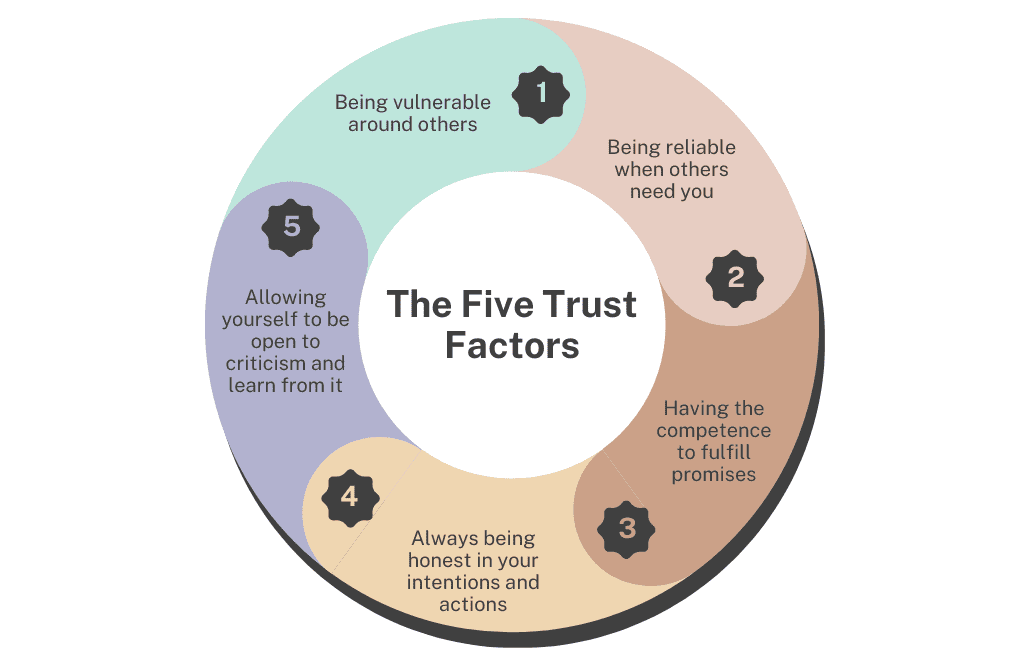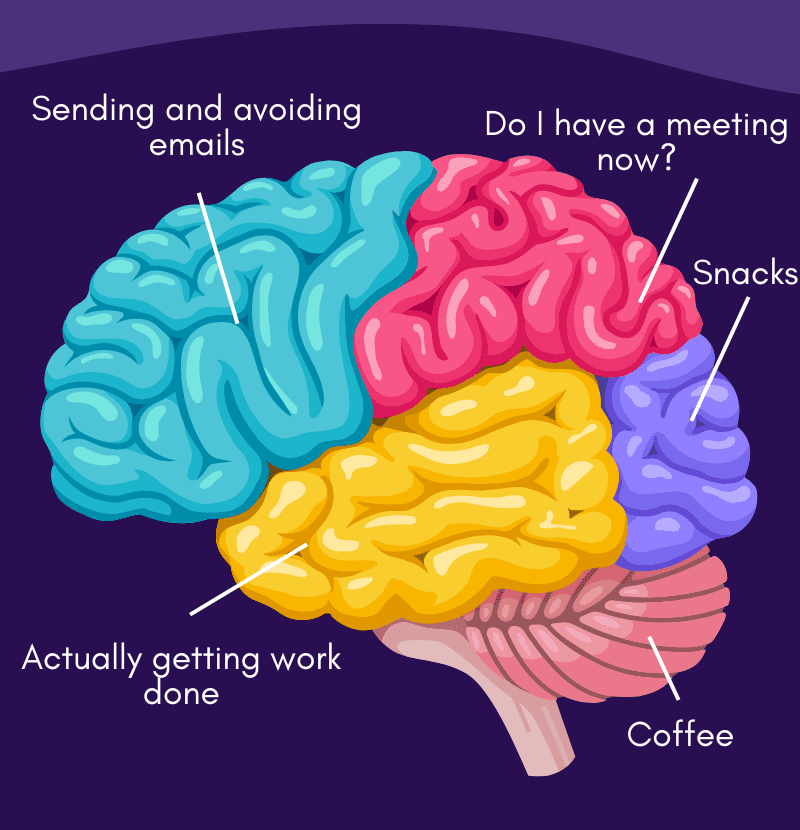Key Takeaways:
- Team building can be intentional without being boring.
- Trust is the foundation for success – for the people and the company.
- It is important to have a strategy for building high-trust virtual teams.
- Why poker is such a good team building game.

Trust Building is More Important for Remote Teams
For all of the problems that working from home has solved, like commuting, schedule conflicts, and wearing pants, remote work does bring some unique challenges – namely, building trust between coworkers. In this article, we delve into the realm of trust building activities for virtual teams, explore the concept of emotional security in the remote workplace, and discuss strategies for creating a trusting culture. Oh, and offer a curated list of engaging virtual team bonding activities, including the most effective games to build trust. I realize that is a lot but don’t worry, it’s not that complicated.
In the era of remote employment, the dynamics of teamwork have undergone a profound transformation. Gone are the days of hanging out at the water cooler or catching up on weekend activities over a stroll down the hallway. Today’s “office” doesn’t need a ping pong table, it needs an effective strategy to create cohesion. My goal is to answer the question, “What is the formula for building trust in virtual teams?”
News Flash – “People who like each other work better together.” Thanks, Captain Obvious. It is not rocket science, although I have run team building event for rocket scientists, so I know it is true. Companies who want to succeed, (and that’s kinda all of them, right?) need to find ways to build trust between employees. Spoiler alert: online team building is the answer. And poker is a particularly good game to meet those goals. More on that later.
Emotional Security = Job Security
Team building has become even more critical as our work relationships are evolving to be as important as our personal ones. Companies that embrace trust building activities for virtual teams reap the benefits of a more cohesive workforce. Trusting coworkers is the path to a more productive and happier work environment.
A study by The Survey Center on American Life shows that post-pandemic Americans have fewer friends. Remote work has allowed people to move to new places and travel more but many friendships depend on location. We meet for coffee, go to a friend’s house for a game night, or grab a meal together. That’s hard to do when you’re fully remote. Consequently, we are spending less time with friends and immediate family and more time with our “work family”. Humans are social animals and have a built-in need for companionship, so we are increasingly leaning on those work relationships to feed our need for connection.
Trust is the Foundation for Success
Companies spend million on marketing, influencers, and branding to convey a sense of trust to the consumer. I would argue that building trust between the company and its employees is even more important. These are the dedicated people who are putting in the work to make the best widgets and what-nots they can and they must be recognized for those efforts. And not just with a pizza party. Don’t get me wrong, I do love free pizza, but my point is, take care of those people and they will take care of your company.
Creating an environment where team members feel like, well, actual team members is key to a happy and productive workplace. Using tools like trust building exercises for remote teams is a great way to give people the opportunity to interact in a non-work way and to create those bonds. There are five trust factors in any relationship, whether it is at work or at home.

While there are five distinctive phases, they feed into each other. Each step building on the last.
- Be vulnerable. Share your challenges with others.
- Be reliable. Follow through on your word.
- Be competent. Bring your full attention and skills to the task.
- Be honest. Avoid ulterior motives.
- Be coachable. Constructive criticism can be a gamechanger.
As you can see from the graphic, it all starts with being vulnerable around the people on your team. That doesn’t occur overnight and cannot be “managed” into someone. Trust building exercises for remote teams are a great place to start building those relationships. Learning about each other comes from spending time together not working. Laughing, playing cards, and just being yourself in the group is the best way to start the process. Ultimately a team that trusts each other will be far more effective and resilient.

What is Virtual Team Building?
I keep talking about virtual team building as the best way to build trust but I have not explained what virtual team building is, or given you any game ideas. That’s about to change.
At its core, the concept of “online team building” or “virtual team building” shares the same fundamental objectives as in-person team building: it revolves around the idea of, “Intentionally bringing colleagues together in a meaningful manner, even if they are working from all over the world”. Yes, I Googled it. The best corporate team building activities allow for coworkers to developed strong interpersonal connections.
Many companies think of “team building” as a fluid idea. They throw in a few ice breakers before a meeting or maybe have a holiday party once a year. Or they ignore the whole concept because they think it is talking about your childhood and doing trust falls. Trust falls are a valuable tool for in-person team building activity, but I can tell you from personal experience, they do not work virtually.
Tips for Effective Team Building
There are three main phases of team building games that take place online for remote workers. Each level brings more depth to the conversation and allows for more connections. These include:
- Icebreakers. Question-triggered personal discovery games. They generally happen at the start or end of a meeting and take a few minutes. These start the team bonding process by finding overlapping interests and historical facts about coworkers: they’re from the same region or school, have the same pet preferences, or like the same foods. The tip of the bonding iceberg.
- Games played in 15 – 30 minutes. These are designed to give participants more time to dig deeper. They allow for longer conversations about personal topics to reveal more about the speaker. Trivia is a great example because as long as breaks are built in between the rounds players have the opportunity to expand on why they know so much 90’s movie trivia.
- Games organized by professionals. Often these are the most effective type of trust building activity because they have set goals and structures. More time is allotted for them and the pros know how to provide just enough prompts to get the ball rolling. A professionally run event should definitely be part of your strategy for building virtual teams because trust is key and a pro can get you to your goals.
Games are awesome. Ask any kindergartener and their favorite activity is recess. Our favorite is Texas Hold’em but if you don’t see what you like in our Top Five, check out our post on Fun and Engaging Card Games for Building Stronger Teams. There you will see some of the best card games that build camaraderie among remote workers.
Top 5 Online Games for Building Trust
#1 – Texas Hold’em Poker Tournament – Over 120 million people worldwide play poker, so don’t underestimate your office mates. The computer runs the game while professional dealers teach everyone how to play. Poker is a great game for all sized groups because it can be played with 8 people or 200.
#2 – Trivia – It’s an old stand by because it works. Players divide into teams and answer questions and compete for prizes or bragging rights.
#3 – Murder Mystery Games – A whodunnit of world wide proportions. or as wide as your invite list. Solve the clues and save the day. (No actual murdering required.)
#4 – Escape Rooms – The popular in-person game makes a great virtual activity for corporate teams. Coworkers must solve a series of clues in order to escape in a set amount of time. Be careful, this game is harder to put on than it appears. You might want to hire a pro.
# 5 – Scavenger Hunt – This game can be as easy or as difficult as you have time for. The Game leader makes up a list of common-ish items and workers set off to find as many items as they can in a set amount of time. Hilarity ensues.
Strategies for Creating a Trusting Culture for Virtual Teams
As I am sure you have already noticed, I am a strong believer in the power of play. Leveraging games for team building is a great trust building technique for remote teams. When you are ready to move beyond icebreakers to a strategic team building program include these tip in your planning process. The key to a positive play experience is choosing a game that has three main elements:
- A structure that allows for social time as well as play time. We advocate for card games because there is room to talk between hands, tell stories, and share in real time.
- Individualized competition. Letting people excel on their own but winning a round, a pot, or the whole game, is a great way to get people involved in the activity. Avoid choosing games that always split people into opposing teams. Let people have their own time to shine.
- Fun is the foundation of effecting team building. Games that are engaging, offer friendly competition, and include a unique element are the most appealing to a wide audience.
The formula for building trust in virtual teams is not a complicated one. Humans are pre-wired for play and naturally drawn toward each other. All the organizer has to do is create a space where people can connect. Hosting a regular schedule of trust building games will reinforce that connection month after month and build a strong team that can weather the storms it faces together.
More Online Team Building Games to Consider
There are obviously more games to consider than just my top five picks. if you really want to dive in check out the 100 Innovative Virtual Activities for Corporate Teams But here are a few more that I like. Some are quick, some you might need help on, but they are all worth adding to your overall game plan for effective team bonding.
More Virtual Team Building Games
#1 – Chubby Bunny Challenge – How many times can you say that phrase in 30 seconds?
#2 – Two Truths and a Lie – This classic deception game is a staple at most meetings and campfires.
#3 – Story Builder – One participant starts the story with an opening line and then the next participant picks it up from there.
#4 – Show and Tell – Easy virtual corporate team building activity with minimal prep. This grade school classic can reveal what we really like as adults.
#5 – Dance Off – Put on a hit song and dance the meeting away. Great for a quick hit of endorphins and the giggles.
#6- Shark or Tank – Participants are randomly assigned a mundane item and must pitch it to the rest of the “Sharks” with enough zeal to convince them to invest. It slices, it dices!
#7- Movie Night – This is generally best scheduled at the end of the workday. Vote on what film to watch and then screen share. BYO popcorn.
#8- Personality Quiz– Start the group off with a phrase to generate discussion. “If I were…” or “I’d teach this subject…” Explore the answer and the why’s behind them.
#9- Virtual Happy Hour – Another EOD option that lets folks just relax and chat. Pick a drink theme or share cocktail recipe’s to provide some structure.
#10- Dinner Party – Much like Happy Hour, have a theme or common thread to tie the night together. Favorite food as a kid? How spicy s too spicy? Weirdest thing you’ve eaten?
Why You Should Host Virtual Team Building Activities
You may wonder why trust building is important for virtual teams. Work relationships are arguably one of the most important ones we have in our daily lives just based on the sheer volume of time spent at work. A person will spend about 14 years of their life at work. That’s a lot of time at the office, even if the office is your spare room.
But how do emotional security and trust-building work together? And why does it matter? Just do your job, right? Not really. It is a basic human need to feel safe and appreciated. That extends to work relationships as well. Companies that implement trust building activities for virtual teams:
- Have less turnover. Remote workers change jobs on average every 3.4 years. Building trust helps reduce turnover.
- Have higher productivity. A study from LinkedIn shows that happy employees are 13% more productive.
- Have better attendance. Research from Harvard Business review shows that happy employees take fewer sick days, leading to a more consistent workflow.
The bottom line is that people who are in a high-trust environment are more secure. They are more able to fully engage, take creative risks, and because of this, are happier at work. High-trust environments are created when a company has a strategy for building effective virtual teams. Trust becomes the foundation for success.

The Formula for Building Trust Starts with Kindness
I’ve already stated that building trust in virtual teams has to be intentional and the first step is to look closely at how you interact with your remote workers and how they respond. There are two types of kindness. Strategic and Altruistic.
Strategic kindness expects rewards for acts of kindness. Our brains understand the inherent manipulation. Altruistic kindness is selfless and without the expectation of rewards. Altruistic kindness activates areas of the brain associated with emotional behavior, making it a unique driver of trust-building. Being the recipient of a kind gesture, compliment, or other positive kinds of recognition can trigger oxytocin and dopamine. These are the feel-good chemicals of the brain. Serotonin is also released and that helps regulate moods. So you end up with a happy calm mind.

What is the Most Effective Virtual Team Building Activity for Building Trust?
Making the Case for Poker
Poker. Yes, poker. To some folks, the word poker conjures up men with cigars in a back room or internet wunderkinds in hoodies and sunglasses. Those stereotypes were certainly true in the past, but today there are more that 120 million people who enjoy the game of poker and the fastest growing segment is women. Poker is a game that can happen on the kitchen table, the casino, or in our case, on the virtual felt. Poker is a great team building activity because it has broad appeal, is easy to access, and our live dealers can teach players anywhere in the world.
When thinking about poker as a trust building activity, it is important to consider the audience. There are three general types of roles in any organization: the top executives, the middle managers, and the main workforce. Each of these groups finds a slightly different appeal to team building through poker. The game is versatile enough to accommodate everyone’s perspective.
- Executive Engagement: Executives enjoy the individualized competition and the ability to prove that they can beat the other players. They get into the statistics of the game and enjoy the camaraderie that is similar to that on the golf course. If you are looking for a great virtual VIP team building activity, consider bringing in a professional poker player or celebrity to join the online poker game.
- Management Skills Are Business Skills: Managers are the heart of any organization and the main force for good (or evil.) Poker and business have many overlapping concepts like operating off of incomplete information, managing budgets, and making strategic decisions in real time. Incorporating these skills into play allows them to showcase their individual abilities and stand out in a crowd.
- Peer to Peer Poker: Poker checks all the boxes for effective trust building. The game has engaging individual competition but is still easy to learn. There is time to talk freely during the play and tell stories or jokes. Our games all come with live dealers who curate the experience so that no one is left behind.
If you are looking to create a trusting culture through virtual team building, you cannot ignore these strategies and activities. Remote work is here to stay and keeping remote employees connected and growing through virtual team building activities will go a long way towards keeping a happy and reliable workforce. Taking the time to create a schedule of trust building activities that includes easy icebreakers and engaging poker tournaments will set a company, and its employees, up for success.

FAQ’s
Looking for a couple of quick answers on the wisdom behind trust building through virtual team building games? Look no further.
Team building virtually is relatively easy. Like in-person, you need to plan fun games and activities for your group. You can use an event planner, or host your own virtual team building events. An easy activity to get started with team building online is icebreaker questions.
An easy way to make a virtual meeting more fun is to include virtual team games and activities that are not work. For example, you might include trivia questions or a quick dance party. We recommend The 8% Rule, which states that 8% of the time in any meeting should be dedicated to fun virtual team building exercises.
Poker. It is easy to learn, has a flow that allows for play and social interaction, and can be played with live dealers anywhere in the world.
Team building games like poker allow employees to be social, have fun, and build emotional bonds that will help improve their overall productivity and work experience. Setting a consistent schedule of trust building activities for your virtual team is key to long-term success.
When it comes to strategies for building effective virtual teams, trust is key. Remote and hybrid teams are less able to build social ties because they don’t have the opportunity to see each other without a work-related purpose. They cannot meet in the lunchroom or stop at another’s desk. To build camaraderie and strengthen bonds, employers must intentionally create opportunities for remote workers to play games and hang out in order to build trust.
Trust among team members is crucial for effective collaboration in virtual teams. Team composition, including the predisposition to trust each other, size, cultural values, and technology used, all influence trust-building.













